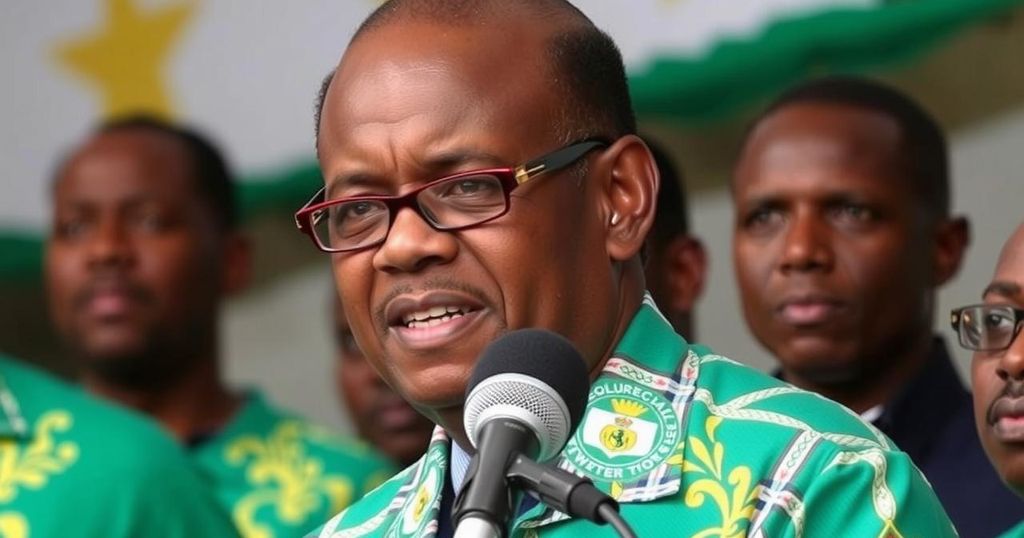Ghana’s Ruling Party Candidate Concedes Defeat in Presidential Election
Vice President Mahamudu Bawumia conceded defeat in Ghana’s presidential election to former President John Mahama. The elections were heavily influenced by dissatisfaction with the economy, marked by inflation and debt crises. Mahama celebrates his decisive victory, as Bawumia acknowledges the public’s call for change. The electoral outcomes may indicate a significant shift in Ghanaian politics, emphasizing the importance of economic management.
In a significant political shift, Ghana’s ruling New Patriotic Party (NPP) candidate, Vice President Mahamudu Bawumia, conceded defeat following the recent presidential elections. The elections, held on Saturday, marked the end of a two-term governance for the NPP under President Nana Akufo-Addo, amid widespread discontent with the nation’s struggling economy characterized by high inflation and debt crises. At a news conference, Bawumia acknowledged the decision of the electorate, stating, “The people of Ghana have spoken, the people have voted for change at this time and we respect it with all humility.”
Bawumia extended his congratulations to his opponent, John Mahama of the National Democratic Congress (NDC), who previously served as president. Public celebrations erupted among Mahama’s supporters soon after, with many gathering outside the NDC campaign headquarters in Accra. In his own announcement, Mahama confirmed Bawumia’s call and celebrated his “emphatic victory.” Bawumia reported that Mahama had won not only the presidency but also the parliamentary elections decisively, according to the NPP’s internal vote count.
The elections were influenced significantly by Ghana’s current economic crisis, which included a currency devaluation and a $3 billion bailout from the International Monetary Fund (IMF). NDC spokesperson Sammy Gyamfi asserted that internal party assessments indicated Mahama’s victory at 56.3% compared to Bawumia’s 41.3%. He stated, “It is very clear the people of this country have voted for change.” Political representatives had monitored the initial vote counts from polling stations prior to the official reporting by the electoral commission, which was expected to release final results by Tuesday.
Historically, Ghana’s political landscape has been marked by stability, with the NPP and NDC alternating in power since the re-establishment of multiparty politics in 1992. Bawumia’s campaign, entitled “Break the 8,” aimed for an unprecedented third consecutive term for the NPP but faced challenges due to ongoing economic criticisms of the current administration. Despite a decrease in inflation rates and signs of macroeconomic stabilization, public sentiment reflected ongoing dissatisfaction, presenting an opportunity for Mahama’s resurgence in leadership contention.
Ghana has a history of alternating governance between two major political parties, the NPP and the NDC, since the revival of multiparty politics in 1992. The recent elections reflected voter dissatisfaction primarily driven by economic challenges, notably rising inflation and debt issues, affecting public trust in the incumbent government. This backdrop highlights the significance of the electoral outcomes, particularly in light of the NPP’s attempts to secure a third consecutive term amid criticisms of its economic management.
The recent presidential election in Ghana resulted in a significant loss for the ruling NPP, as Vice President Mahamudu Bawumia conceded defeat to former President John Mahama of the NDC. This outcome underscores the electorate’s desire for change in response to ongoing economic challenges rather than maintaining the status quo. Bawumia’s concession and Mahama’s victory signal a potential shift in Ghanaian politics, reflecting the voters’ prioritization of economic stability and effective governance.
Original Source: www.voanews.com




Post Comment